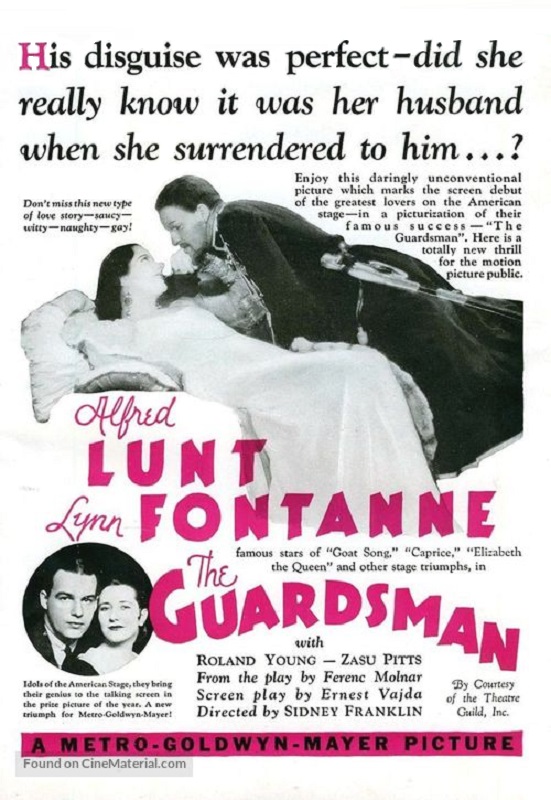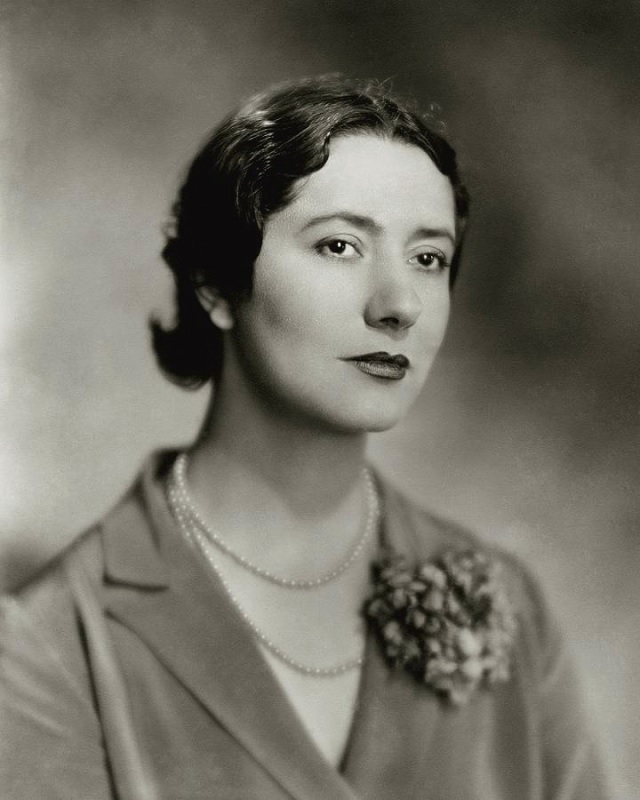


1931-1932 – Lynn Fontanne
The Guardsman
Lynn Fontanne was married to her costar Alfred Lunt, and the two were both nominated for Best Actress and Actor, respectively. While they both did a fine job, I think Fontanne was slightly overshadowed by her husband, whose role was far more interesting to watch. Lynn’s character was shown as simply the Actress in the credits, and no actual name is ever given. Apparently, she is so beautiful and desirable that she could have any man she wanted, and her husband is an insanely jealous man. And that’s the basis for the screwball comedy plot.
It was as if the Actress played the straight man to the Actor’s comedy. Unfortunately, most of her presence in the plot was, when talking to the Russian Prince, to say “Yes,” and, “No,” and, “I love you but I can’t have an affair with you.” She would say, “I can’t ever see you again,” quickly followed by, “I shall be at the opera tonight, first tier, box four.” Until after the opera, when she took the Prince into her bed. Don’t worry, this was pre-code.
But was that just it? Was that the allure of her character? I suppose it must have been. It was what drew audiences to the theatre. It was the big question that was printed right at the top of the movie poster. “His disguise was perfect – did she really know it was her husband when she surrendered to him?” In the film, the question is never satisfactorily answered. I was left with doubt.
In fact, that’s how the movie ends. After he Actor’s ruse is finally revealed, we have to ask. Did she know all along that it was her husband? She is asked, “So you recognized him from the very first moment?” And in that last shot, Fontanne sells it. She doesn’t say a word, but smiles almost imperceptibly, and nods her head slightly. Because of the brilliant way she played it, I was left wondering… did she really know, or was she desperately lying to cover up her infidelity?
And that’s why she deserved her Best Actress nomination. It was a credit to her skill as an actress. I think it was intentional that the big question was never really answered. And it was only effective because of how Fontanne played it.





